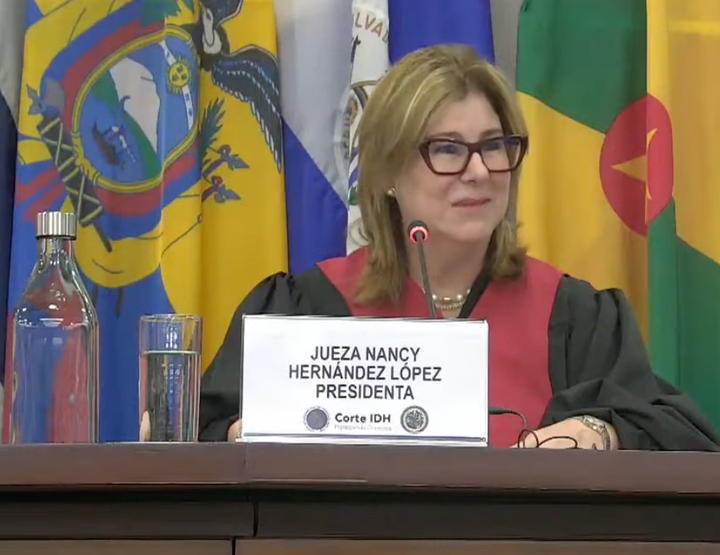French "Case Of The Century," Alleging France Is Falling Short On Climate Action, Comes Before Administrative Court In Key Hearing

* UPDATE (1/16/21) – France is at fault and could indeed be held responsible for failing to take sufficient climate action, the public rapporteur (an independent advisor to the court) concluded. This finding is an important step towards climate justice in France.
As the coalition of environmental and human rights groups bringing the legal case explained: “ If the court follows the conclusions of the public rapporteur, the responsibility of the French State in climate change would be recognized because of the insufficiency of its actions. This would be a historic breakthrough in French law and a major victory for the climate and for the protection of everyone in the face of the consequences of climate change. All victims of climate change could then rely on this jurisprudence to assert their rights and obtain redress. The State would then come under strong pressure to finally implement the necessary actions to limit warming to 1.5 ° C.”
During the hearing on January 14, Amélie Fort-Besnard, the public rapporteur, advised the court to find France at fault for not taking all necessary measures to meet its climate commitments. But rather than issue an order for additional measures, she recommended the court wait to allow time for the two sides in this case to engage in discussion, as well as for the Council of State to hand down its decision in a related climate lawsuit brought against the French State by the community of Grand-Synthe.
Additionally, the public rapporteur recommended the administrative court recognize ecological damage as a valid cause of action, which would be a major breakthrough in environmental law. According to Oxfam France (via English translation): “This recognition of ecological damage by an administrative authority means that a public person, like a private person, can be held liable for damage caused directly to the environment. For the public rapporteur, climate change is causing such damage and the State can be held responsible for it, because of the insufficient actions taken to fight against it.”
---------
Four environmental organizations are facing off in court today, January 14, against the French state in a climate case alleging France is not taking adequate action on the climate crisis to protect the rights of French citizens.
Dubbed “Affaire du Siècle” or “Case of the Century,” the lawsuit is part of a growing wave of litigation worldwide challenging government policies and responses to the climate emergency. The French case comes before the Administrative Court of Paris, the city where the world convened in December 2015 to adopt the landmark international agreement recognizing the imperative to limit warming to well below 2 degrees C.
Five years later the nations of the world are largely not on a path to achieving this target. Only Morocco and Gambia are projected to meet the 1.5 degree C threshold under current policies, according to Climate Action Tracker, with France and the rest of the European Union deemed “insufficient,” meaning on track for up to 3 degrees C of warming in violation of the Paris Agreement.
It is in this context that the Case of the Century arises before the French judiciary. Led by an organization called Notre Affaire à Tous in partnership with Greenpeace France, Oxfam France and Fondation pour la Nature et l’Homme, the case has garnered support from over 2 million people and seeks to compel France to take all necessary measures to slash greenhouse gas (GHG) emissions consistent with the 1.5 C threshold.
Specifically, according to a summary of the case from the Sabin Center’s climate litigation database, the plaintiffs are also requesting an order that France “take, at least, all necessary measures to achieve France's targets for reducing greenhouse gas emissions, developing renewable energies and increasing energy efficiency; take the necessary measures to adapt the national territory to the effects of climate change; take the necessary measures to protect citizens’ lives and health from the risks of climate change.”
The case alleges that France is in breach of its duties under domestic and international law, such as the French Charter for the Environment and the European Convention on Human Rights. The four organizations launched their legal campaign in 2018 and submitted their summary request (filed their lawsuit) to the Administrative Court in March 2019.
On January 14 the court is taking up the case in a hearing. Both sides will present their arguments, and the public rapporteur will offer the judges his recommendations. The role of this public rapporteur is to provide the hearing with an independent opinion on the questions involved in the case. A decision from the court is then expected in approximately two weeks, by the end of January.
The French environmental organizations say they are encouraged by a ruling in November 2020 from France’s highest administrative court (the Council of State) ordering France to justify that it is meeting its climate goals without more ambitious policies. That ruling came in a separate lawsuit brought against France by the coastal community of Grande-Synthe, which is facing climate impacts like extreme flooding and rising seas.
In a post on its website (translated to English) describing the case and the Jan. 14 hearing, the Fondation pour la Nature et l’Homme called this day in court a “decisive day for climate justice,” one where “justice could finally force the State to respect its commitments to fight against climate change.”


